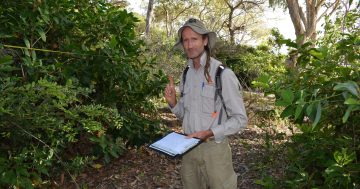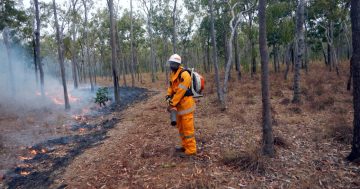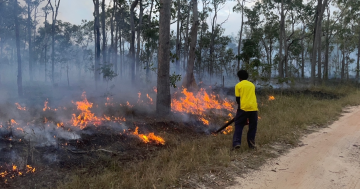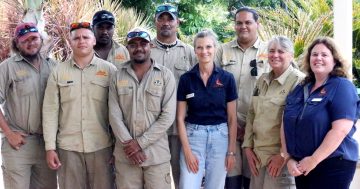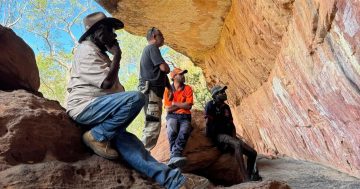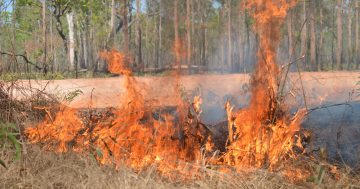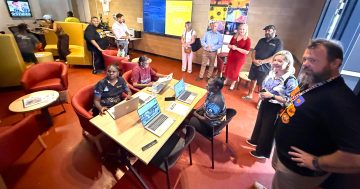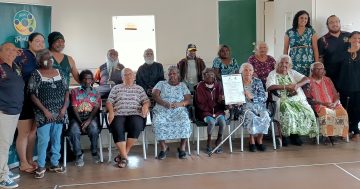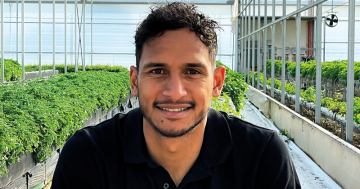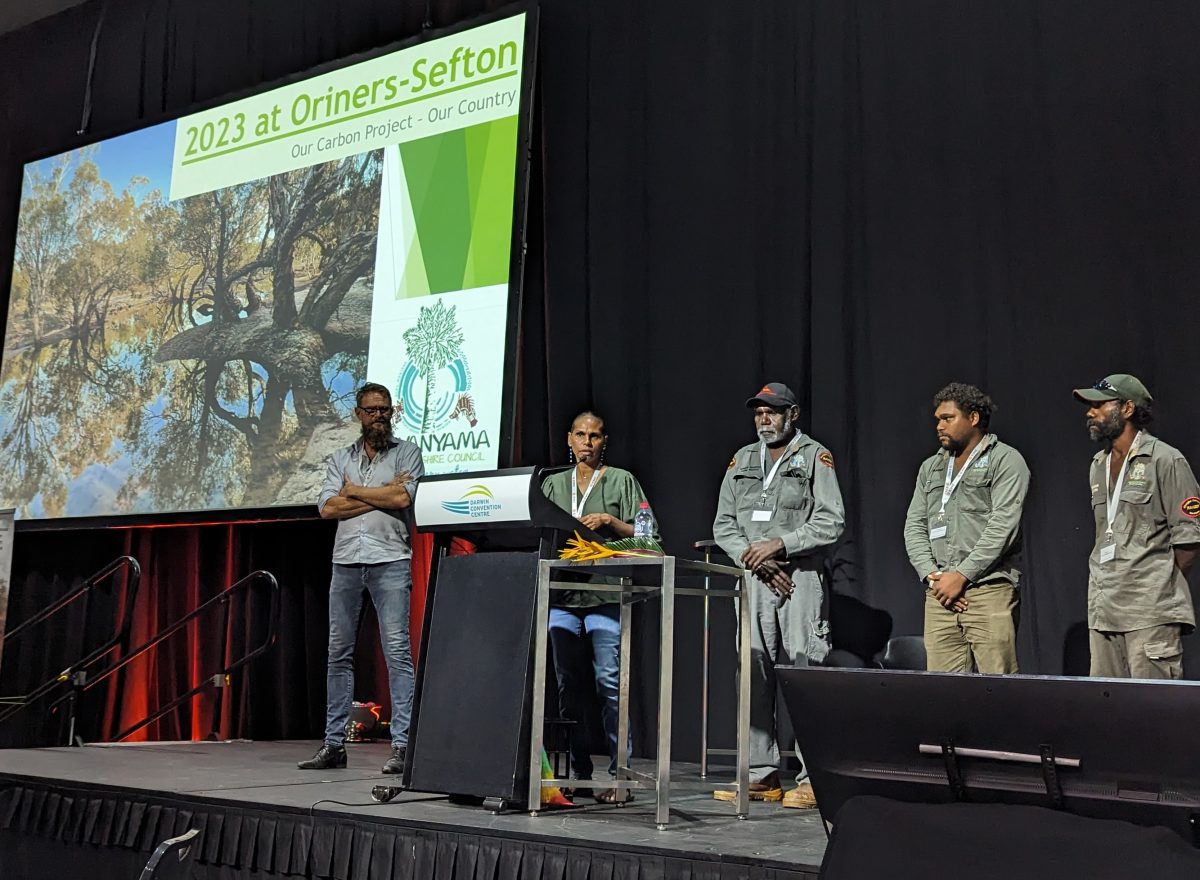
Traditional Owner Clarita Yam and the Kowanyama Land and Sea Rangers shared the importance of preserving traditional land management practices. Photo: Kowanyama Aboriginal Shire Council.
“Everything I learned about Country, I learned from my dad.”
Talking to Cape York Weekly about the Kowanyama Land and Sea Rangers’ feature at the Indigenous Carbon Industry Network 2024 Northern Australia Savanna Fire Forum, Traditional Owner Clarita Yam said that was her key message as she stressed the importance of passing knowledge to future generations.
Nearly 500 Indigenous fire practitioners, scientists and carbon experts from across Australia and around the world gathered earlier this month to exchange knowledge about sustainable land management practices.
Ms Yam and the ranger team showcased their commitment to preserving traditional land management practices and shared insight into Kowanyama’s early burn program.
“The burn is after the wet when the grass is [mostly] still green; the brown patches, that’s the early burn,” Ms Yam explained.
She said the early burn practice was traditionally used to control and reduce grass that would later dry up and turn into fire fuel in the dry season.
“It’s good to know early burn, because when it gets around August, September, October, it gets so hot and the grass gets very, very dry from the heat.
“It’s a lot of fuel and then if you just chuck a match there, a raging fire goes through them and through the Country.
“It’s important to us, because in the old days before with our old people, they used to burn grass constantly for this.”
Ms Yam’s father spent his entire life on Country and taught her the intricacies of burns for land management.
“I learned from my dad that when you burn too much, you burn out your Country and there’s nothing left for your cattle, wallabies and kangaroo,” she said.
“He also said you don’t always have to have blowers to have fire.
“We burn in the traditional way of breaking branches and wetting the leaf from the river, and managing to know which way the wind is blowing.”
Ms Yam has worked to pass on her knowledge to her children, and emphasised the importance of more Traditional Owners returning to Country to continue the vital work of caring for both the land and culture.
“My kids come out to traditional burns, too, and they learned the whole traditional way from us,” she said.
“We’ve been always doing it during the school holidays; we go out hunting and walk the Country, and when the grass is too high, we could have the burn for the kids to do.
“It’s important for them to connect to Country and learn about the traditional ways, so they can teach their kids too in the future.”


